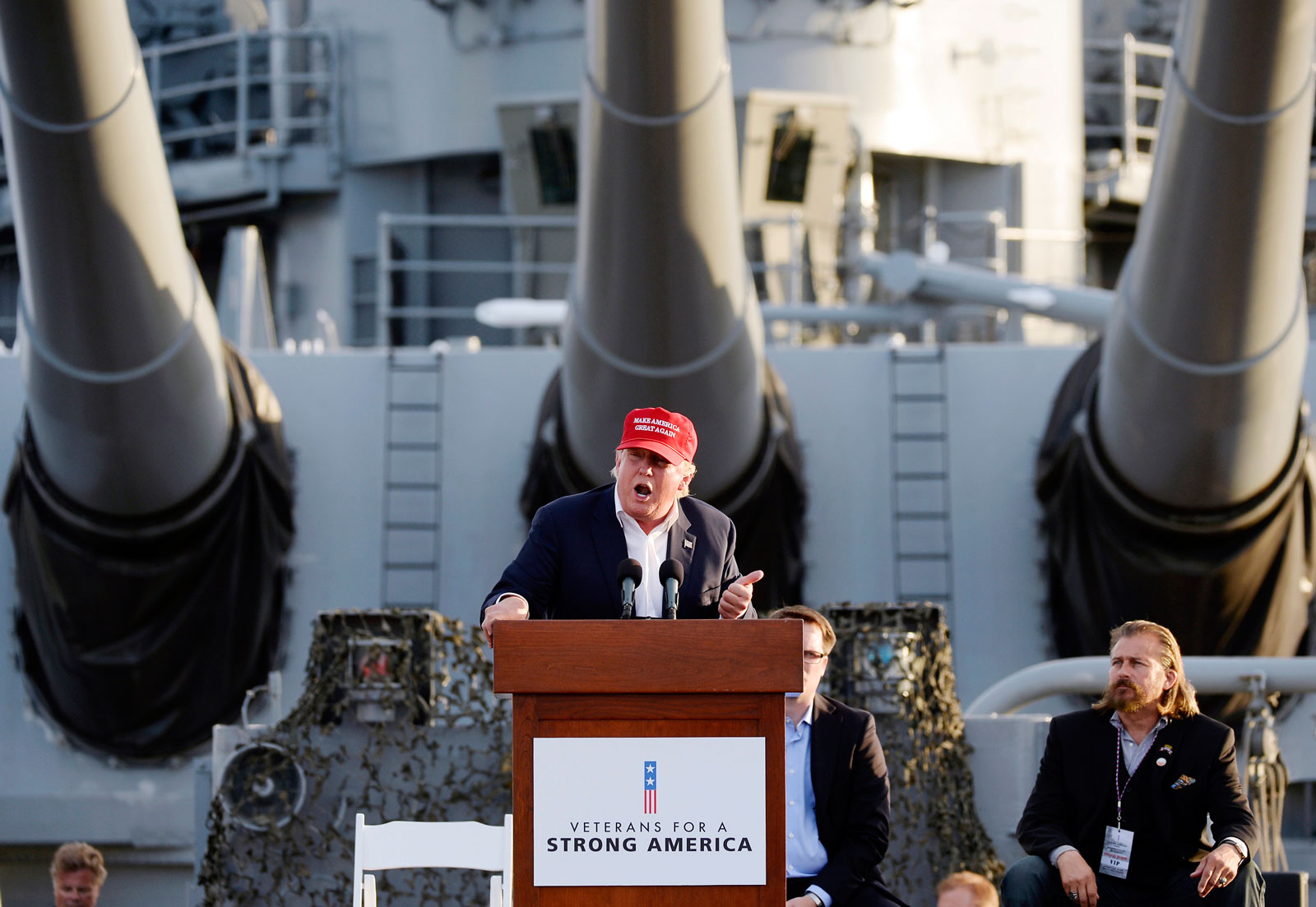At the blog of the NY Review of Books, Masha Gessen comments on recent events—including the US’s retaliation for Assad’s use of chemical weapons in Syria, and the frosty reception that US secretary of state Rex Tillerson received in Moscow—that suggest mounting tension between the US and Russia. Gessen suggests that these events are less the result of geopolitical brinksmanship than of impulsive and egomaniacal moves by two complementary yet contrasting madmen—Putin and Trump. Read an excerpt from the piece below, or the full text here.
As for the new madman on the world stage, Trump appears to be comfortable with the idea of enmity with Russia. “We may be at an all-time low in terms of [our] relationship with Russia,” he has said—a statement that may be contested by historians of the cold war—and NATO is “no longer obsolete”—a construction that may be questioned by linguists.
Traditional policy thinking sees the United States as choosing between realist and values-based approaches to Russia. Realists seek to cooperate with the Kremlin where possible and tend to look the other way when the Kremlin tramples human rights and, sometimes, when it tramples international law. Values-based politicians lend their support to the dissidents, often at the expense of the possibility of a more harmonious relationship. But whatever continuity Zakaria might have imagined, the Trump administration’s relationship with Russia falls into neither category. When Rex Tillerson traveled to Moscow, he refused even a meeting with Russian human rights activists, making him the first secretary of state in generations to do so. The new Russian-American confrontation is not about values or law: it is about power and ambition. Of course, the die-hard Russia conspiracy theorists continue to insist, as MSNBC’s Lawrence O’Donnell did, that all the elements of the escalation, from the chemical attack to the Tomahawk missiles, were one giant cover-up of the Trump-Putin collusion. But the search for a hidden truth is, as ever, an attempt merely to avoid looking at the clear and evident one: both Trump and Putin are engaging in the politics of spectacle and gesture for no greater reason than that it makes each of them feel good and powerful.
Putin’s relationship to television is different from Trump’s because Putin controls Russian television outright. But war has been good for him, too. The occupation of Crimea brought up Putin’s poll numbers, and even the dead-end war in Eastern Ukraine and the unpopular intervention in Syria have not taken them down. It’s all about the ratings for both men, in the end. The problem is, the bomb Trump has dropped is only one step down from a nuclear one. When the madman option is what looks most presidential, the nuclear option may no longer be a metaphor.
Image: Donald Trump on the USS Iowa, Los Angeles, September 15, 2015. Via NYR Daily.
